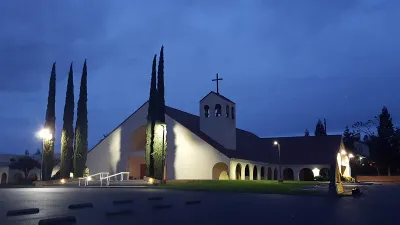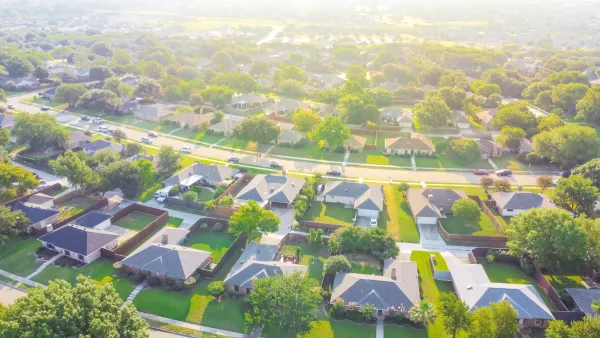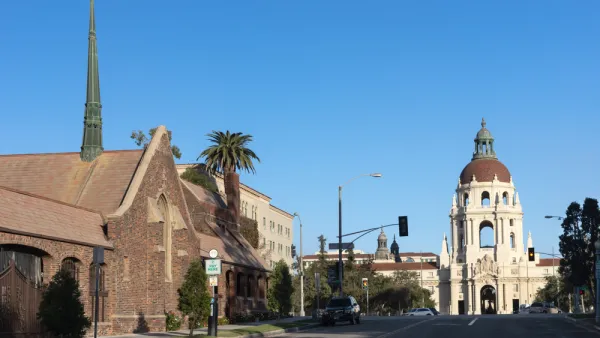As owners of valuable urban real estate, some churches are taking up the mandate to serve their community by using their vacant properties to provide housing for people being priced out of their homes.

A project that will provide 12 units of affordable housing on property owned by the Genesis Worship Center in East Oakland "is an early example of a wave of similar projects breaking ground at faith-based institutions across the country," writes Patrick Sisson in Reasons to be Cheerful. The $2.5 million complex "not only provides the church with another way of serving the community, but helps support the ministry during a trying time for urban churches."
Because they own and control their properties, "often located in the middle of residential areas," churches "are uniquely positioned to help solve the affordable housing crisis," writes Sisson. "A 2020 report by Berkeley’s Terner Center for Housing Innovation found roughly 38,800 acres of developable land in California owned by religious institutions, a combined plot the size of the city of Stockton, with 45 percent located in the state’s highest resource area (neighborhoods with lower poverty rates and greater economic and educational amenities) and 256 acres located near public transit."
To assist in the process, "a constellation of programs have taken shape to help other church leaders do what [Bishop] Matthews did, teaching them the ins and outs of development timelines, construction and housing regulations. The Bay Area chapter of the Local Initiatives Support Corporation (LISC), a nonprofit Community Development Financial Institution, runs a program that is investing $1 million to train religious leaders, connect them to developers and provide small grants to get them started." In California, "a bill that’s repeatedly been introduced and defeated in the state legislature, SB899, would give faith institutions the ability to build 100 percent affordable housing on their land “by right,” meaning they could skip the often onerous zoning approval process."
FULL STORY: Churches Are Becoming Players in Making Cities More Affordable

Analysis: Cybertruck Fatality Rate Far Exceeds That of Ford Pinto
The Tesla Cybertruck was recalled seven times last year.

National Parks Layoffs Will Cause Communities to Lose Billions
Thousands of essential park workers were laid off this week, just before the busy spring break season.

Retro-silient?: America’s First “Eco-burb,” The Woodlands Turns 50
A master-planned community north of Houston offers lessons on green infrastructure and resilient design, but falls short of its founder’s lofty affordability and walkability goals.

Test News Post 1
This is a summary

Analysis: Cybertruck Fatality Rate Far Exceeds That of Ford Pinto
The Tesla Cybertruck was recalled seven times last year.

Test News Headline 46
Test for the image on the front page.
Urban Design for Planners 1: Software Tools
This six-course series explores essential urban design concepts using open source software and equips planners with the tools they need to participate fully in the urban design process.
Planning for Universal Design
Learn the tools for implementing Universal Design in planning regulations.
EMC Planning Group, Inc.
Planetizen
Planetizen
Mpact (formerly Rail~Volution)
Great Falls Development Authority, Inc.
HUDs Office of Policy Development and Research
NYU Wagner Graduate School of Public Service




























